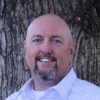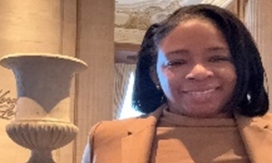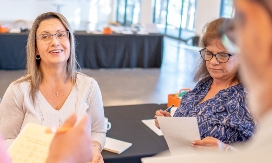Upcoming Webinars
Access the latest trends and insights shaping the profession—free for members.
Share your Expertise In Person or Virtually.
Register early—members get 20% off when enrolling 60+ days before courses start.
Charting Your Course to Success
From foundational knowledge to advanced leadership skills, NIGP offers a wealth of tools and resources to help you navigate your professional journey and achieve your leadership goals.
Your step-by-step guide to a successful career in public procurement.
Register early—members get 20% off when enrolling 60+ days before courses start.
All the tools to help you successfully prepare for certification.
Opens January 5.
Start your job search in the field of Public Procurement.
Join a network of thousands of professionals working in the field of Public Procurement.
As volunteers serve the Institute, the Institute serves the profession, and the profession serves society.
Each year, NIGP recognizes members who have achieved hallmark status in the eyes of their peers.
Access to Our Exclusive Audience of Procurement Officials
19,000+ public procurement professionals, over 2,400 agencies, and 65 regional chapters across North America
Share your Expertise In Person or Virtually.

Register early—members get 20% off when enrolling 60+ days before courses start.
.jpg)
Charting Your Course to Success
From foundational knowledge to advanced leadership skills, NIGP offers a wealth of tools and resources to help you navigate your professional journey and achieve your leadership goals.

Your step-by-step guide to a successful career in public procurement.
.jpg)
Register early—members get 20% off when enrolling 60+ days before courses start.

All the tools to help you successfully prepare for certification.

Opens January 5.

Start your job search in the field of Public Procurement.

Join a network of thousands of professionals working in the field of Public Procurement.
.jpg)
As volunteers serve the Institute, the Institute serves the profession, and the profession serves society.

Each year, NIGP recognizes members who have achieved hallmark status in the eyes of their peers.
Access to Our Exclusive Audience of Procurement Officials
19,000+ public procurement professionals, over 2,400 agencies, and 65 regional chapters across North America

Ryan Blaine
My interest in procurement started back at Boise State. I was working as a storekeeper (essentially a warehouse worker), and I loved the hands-on nature of the job. Around the same time, I was taking a general business class that featured guest lectures from different business departments. One speaker, from supply chain management, introduced us to procurement. That one talk sparked my curiosity. I decided then that I wanted to be a buyer.
I got my start at the Idaho Transportation Department and, over the next decade, moved through various procurement roles across several agencies. I worked for Idaho Fish and Game, which was a dream for a guy who grew up fishing and exploring Idaho’s outdoors, then the Division of Administration, and now Ada County, where I serve as a Procurement Officer.
Throughout that journey, I’ve held leadership roles of all kinds, from leading no one to running an entire department. I’ve also been deeply involved in NIGP and our local chapter, the Idaho Public Purchasing Association (IPPA), since my earliest days in the field. I’ve served on the IPPA board and participated in multiple NIGP events.
One of the main reasons I pursued the Edge program was because of a leadership role I once held that didn’t go as planned. At the time, I lacked the right training and perspective. I came in thinking I could just take charge and get people to follow or get out of the way. Unsurprisingly, that approach didn’t work.
When I learned about the Edge program, I applied for the scholarship and laid it all out in my application: I had made mistakes and wanted the tools to lead more effectively. I’m now part of an incredible team with a strong process and national recognition, and I want to contribute to our continued success. Thankfully, I was awarded the scholarship, and the program experience exceeded all my expectations.
 I expected Edge to be like other large NIGP events, with lots of people and completely packed schedules. But Edge was different. First, it was a small group of 40 people. The program was highly structured based on our career paths. It was also very intentional and highly interactive. Over several months, we built real connections by meeting online once a week or every other week. By the time we met in person, it felt like I already knew my cohort.
I expected Edge to be like other large NIGP events, with lots of people and completely packed schedules. But Edge was different. First, it was a small group of 40 people. The program was highly structured based on our career paths. It was also very intentional and highly interactive. Over several months, we built real connections by meeting online once a week or every other week. By the time we met in person, it felt like I already knew my cohort.
Those two and a half days of in-person collaboration were a highlight. We bounced ideas around, challenged each other, and had meaningful conversations that stuck with me. Our facilitator was phenomenal, and the small group setting created a safe space for growth.
One of the most impactful moments for me was the DISC assessment. Out of 40 participants, I was the only “D” for dominant. The result didn’t surprise me because I know I can be direct and results driven. But going through the assessment made me think harder about how that style of leadership might affect my team.
We also went through an emotional intelligence assessment, and my empathy score was nearly nonexistent. That was a wake-up call. I realized I needed to slow down, listen, and lead in a way that considers how others want to work, not just how I want to operate.
Since Edge, I’ve already applied those important lessons. At Ada County, I work with a team of eight. Two of us are dominant types, and we naturally click. But the rest of the team operates differently, and I’ve learned I can’t just impose my will. I have to adapt, communicate better, and build consensus. We have very open communication, and they will let me know when I’m becoming too dominant. They’ll help me slow down and have a little more empathy for what’s going on around me and an understanding of how people operate.
For me, the Edge program wasn’t just about personal growth but about becoming a better teammate and leader. It helped me rethink how I approach challenges, how I relate to others, and how I support my team’s success based on my personality and leadership style.
If you're thinking about applying to Edge, here’s my advice: be honest when you write your essay. Don’t try to present a perfect image of yourself as a leader. Be open about your gaps and your goals. This program will open your eyes to things you can’t even imagine and help you become a better leader.

Jessica Connor, NIGP-CPP, CPPB
Stay Informed, Join our Mailing List

.jpg)
